
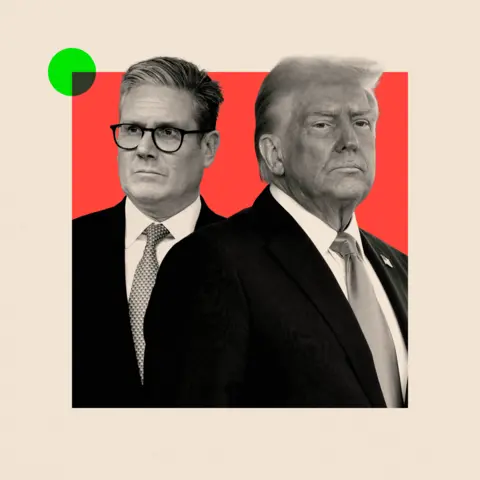 BBC
BBCThe next seven days really matter.
“The most negative thing would be a gruesome sell-out of Ukraine and we get slapped with tariffs,” says a source involved in working out the best moves for No 10 as Sir Keir Starmer prepares to head to the White House to meet President Donald Trump.
“The better version is Trump returns to a bit more robust behaviour with the Russians, Britain gets patted on the back for making a move on defence spending and we avoid all the tariffs – a Trumpportunity.”
With Whitehall-style understatement, a different official predicts the PM “has a really big decision to make about what to say to Trump in private” – remember, just this week the president accused Sir Keir of “doing nothing” to try and stop the Ukraine conflict.
So what options does Sir Keir have?
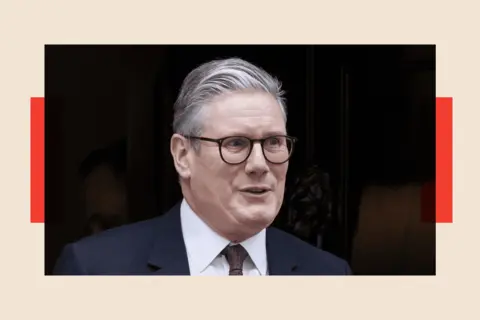 EPA-EFE/REX/Shutterstock
EPA-EFE/REX/ShutterstockA decision on defence spending is the big focus. The drumbeat of demands for the UK to boost spending was getting louder even before Trump moved into the White House.
The government hasn’t yet committed to when it will hit its target of spending 2.5% of the size of the economy, let alone if it will go a lot further as military leaders, Nato, Trump, and now even the Liberal Democrats are calling for.
A senior government source says the PM is “pushing the system” to get to a stronger position on spending, but in recent days it’s suggested the Treasury’s still asking about the spending consequences. The dilemma is obvious: public money is tight as a drum, and Downing Street doesn’t want to take cash from the NHS or other priorities at home.
But a Treasury source acknowledged “the world is changing”, and sources describe a “phenomenal” opportunity to take the European lead and please Trump with cash promises.
A Trump backer warns against anything lukewarm: “a proper commitment, not just a road map, or a path – be more specific, say ‘Yes we’ll hit it by this date,’ and throw in some more”.
“He’s going to have to do 3% [or more],” one Whitehall insider suggests, “so the choice is, does it do it now, for the right reasons, make a virtue of it, or does he end up getting browbeaten into it by Trump?”
I’m told that there is no final decision on what to say – and crucial meetings are planned between ministers, officials and military advisers at the start of next week to decide.
What next for Ukraine?
Ukraine is, clearly, central to the talks, and the question looms over what happens if Trump gets the ceasefire he wants.
In the last week UK and French military planners have been working on options, all of which are at an early stage. One idea is that a “reassurance” force of perhaps 20,000 or 30,000 UK and French troops could be deployed after a ceasefire around Ukrainian infrastructure, ports, nuclear power stations, even in some of the key cities.
The model of a joint UK-French force already exists – the Combined Joint Expeditionary Force, a deal signed by the two countries several years ago. Another source suggests the best option for a monitoring force would be under the badge of the UN, if the Russians could be persuaded to accept that, with Ukraine’s allies stepping up training and support for Ukraine inside the country.
These options in broad terms, given a public airing by Sir Keir Starmer this week, aren’t new, one adviser says, and have been suggested in private for a long time. Another source in government says the plan for 30,000 troops is “not yet an actual thing” – there’s no detailed blueprint.
But European leaders know they have to prove to Trump they are serious about contributing to a lasting peace, rather than leaving it to the United States.
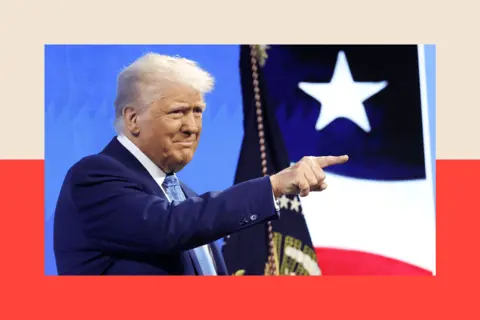 Reuters
ReutersI’m told when French President Emmanuel Macron, Trump and Zelensky met in the margins of the fanciest international get together of recent times, the reopening of Notre Dame, Trump said that he’d get Russia to the table, Zelensky said that he would go to the negotiating table, and Macron promised he’d make sure Europe played a real part.
It’s worth noting that Trump said “that’s great, I’m all for that”, when asked earlier this week about the idea of European troops being deployed was mentioned.
‘We know who the goodies are’
But as the talks approach, uncertainty about the US’ true view is the fundamental, and some in government are nervous. Does Trump really believe that Zelensky is a “dictator” – or, as Trump’s Ukraine envoy suggested yesterday, a “courageous leader”? Does Trump want the “sugar rush” of a quick deal that might favour Russia asks one former defence minister, more than achieving something long-term?
A Trump backer said it is “obscene” to suggest that the president is a Putin sympathiser, pointing to his previous decisions to approve the sale of Javelin missiles to Ukraine.
In No 10, “we don’t think there is a cut and run”, a senior source says. In private, US figures have reassured the UK that the United States is not about to turn its back on Ukraine.


In Brussels last week the US Defence Secretary Pete Hegseth made headlines when he signalled the US would reduce its support for Ukraine – but a source in the room during the private talks after his controversial public remarks told me Hegseth said “we know who the goodies are and who the baddies are”.
There is though anxiety in government that Trump might be tempted to just force a deal to end the conflict, then Russia could “just reload then go again”, according to another source.
But there is a shaky faith – perhaps more accurately a fervent hope – that whatever the president’s public remarks, that the US will try to involve Ukraine in the talks and does think the peace has to be a deal that lasts, with a force that looks credible, potentially with some form of American support.
Emmanuel Macron, and then Sir Keir, will try to persuade Trump that a deal with security guarantees for Ukraine is the only true victory for the White House.
Remember why all this matters so much back home. What Trump decides to do about the conflict has an effect not just on the security of our continent but our prosperity too: the Ukraine war has shaken our economy through the effect it’s had on energy bills.
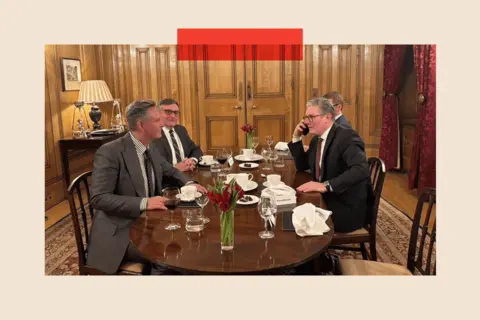 US Gov
US GovThere is also, of course, the simple and awful human cost of lives lost – Ukrainians and Russians – hundreds of thousands of casualties, with terrible suffering on the edge of Europe. Thousands of families in the UK opened their homes to Ukrainian refugees at the start of the war.
The former defence minister notes: “Sometimes when there is all this noise, we have to still find a way to keep supporting them. Who knows when it is going to end, the only thing we know is they are still being attacked.”
As the war’s three-year anniversary approaches you can expect to hear this message from government too.
And of course what happens matters enormously to the fortunes of this government. Sir Keir might have a huge majority, but he has battled to retain political momentum and his popularity has plunged since taking office.
He may even want to bring other things to the famous Resolute desk beyond defence and Ukraine: Trump is, a senior government source says, notoriously unpredictable and may swerve off topic.
A source familiar with Trump’s thinking suggests the PM could turn Trump’s freewheeling style to his advantage by putting other issues on the table – an offer to buy more American Liquid Natural Gas perhaps, revising the deal on the Chagos Islands, a tougher position on China, or a discussion about tech regulation perhaps, with Apple in a huff with the UK government.
Starmer might not have chosen – few prime ministers do – to have to confront complicated foreign policy tangles early in office. But one Whitehall observer notes “kudos to No 10 for handling Trump” so far, not reacting to his every outburst.
And Brexit, ironically, helps Sir Keir the Remainer carve out a separate role to the rest of Europe.
Working with Trump might be like handling a live firework. But the international jeopardy does present opportunities for the PM, as one former senior official suggests.
If “you don’t have much of a compelling agenda, your social policy is looking hard, your economic policy is looking hard, you can see why he might think, do you know, the air miles are starting to look pretty attractive”.
This week presents Sir Keir with all sorts of dangers, but also, a chance to lead.
BBC InDepth is the home on the website and app for the best analysis, with fresh perspectives that challenge assumptions and deep reporting on the biggest issues of the day. And we showcase thought-provoking content from across BBC Sounds and iPlayer too. You can send us your feedback on the InDepth section by clicking on the button below.

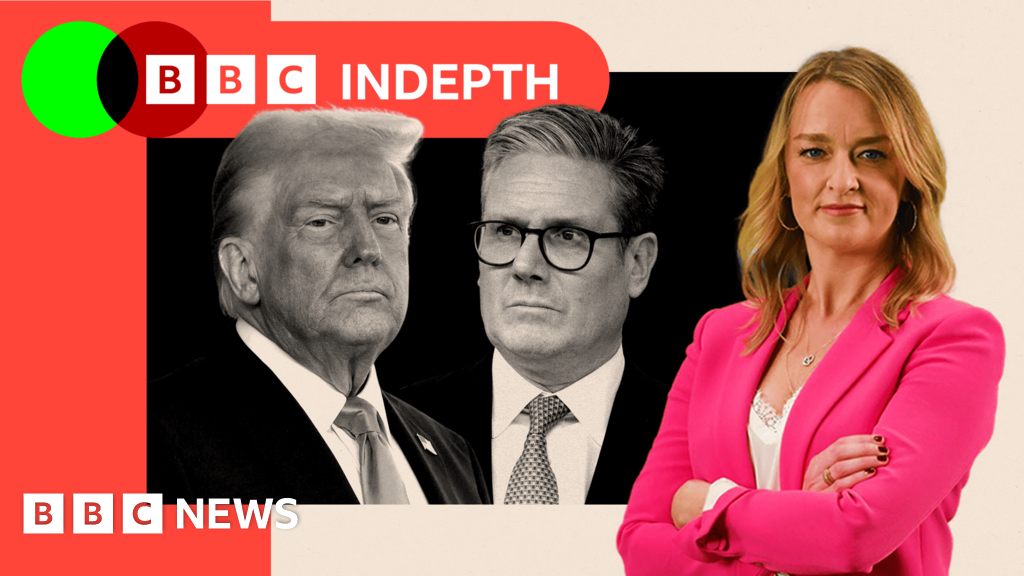

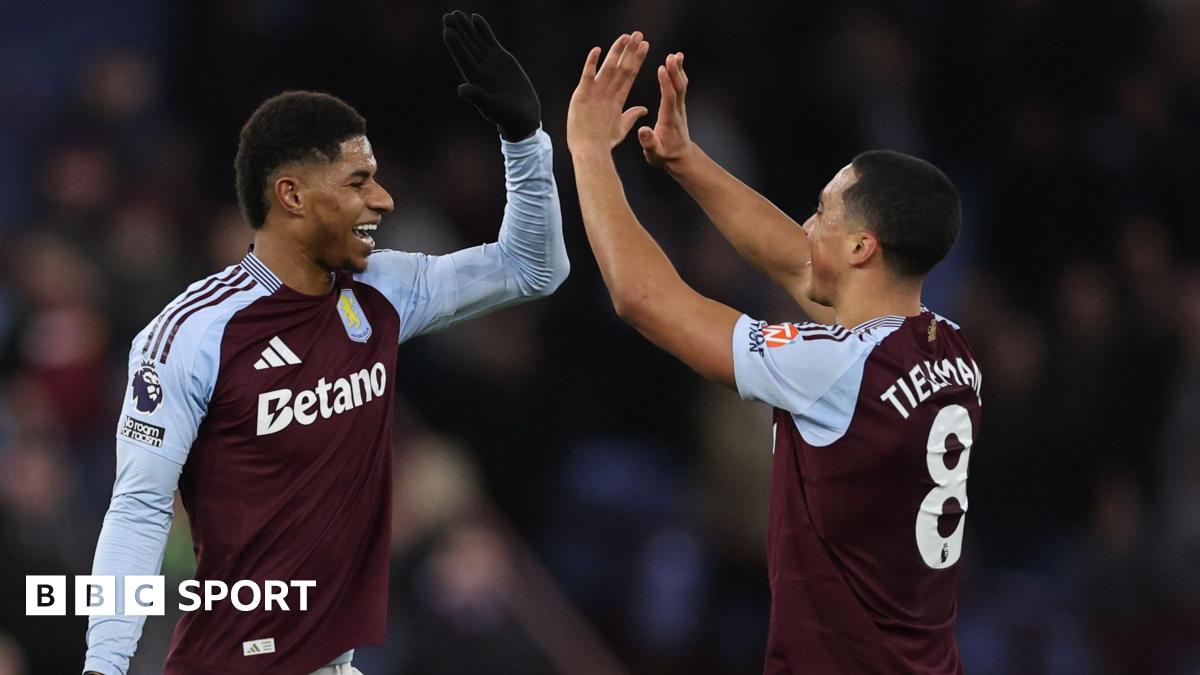


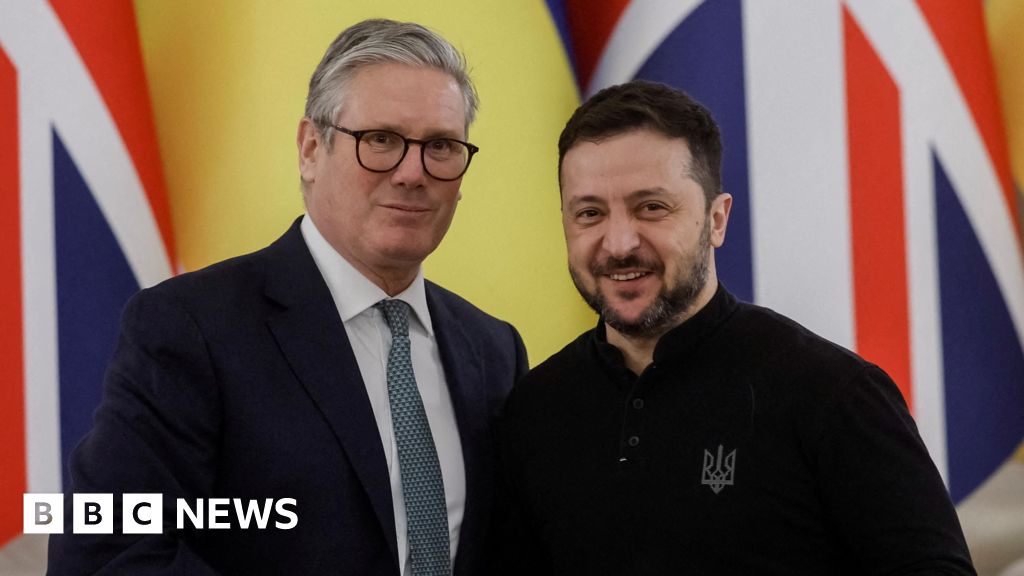
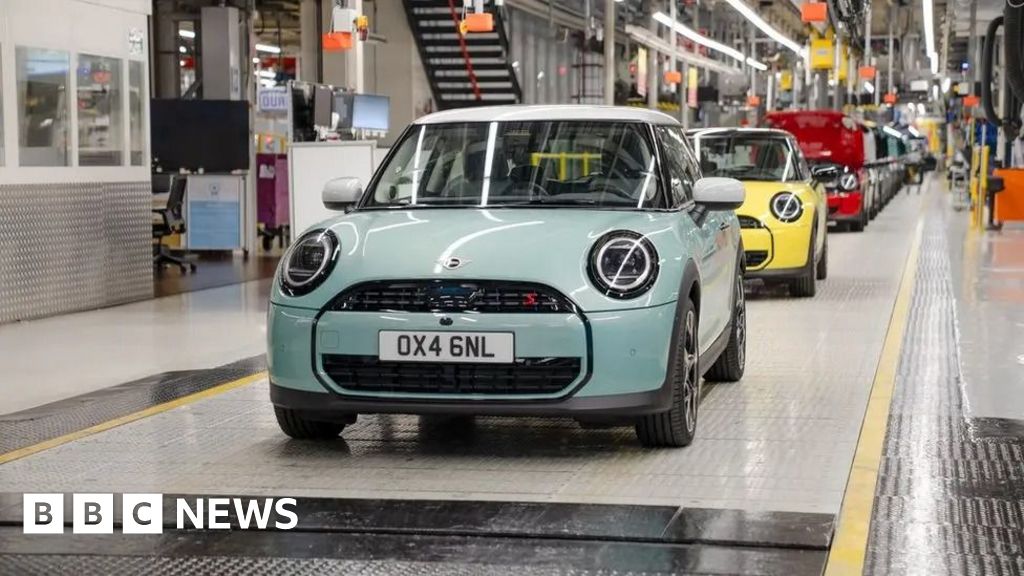
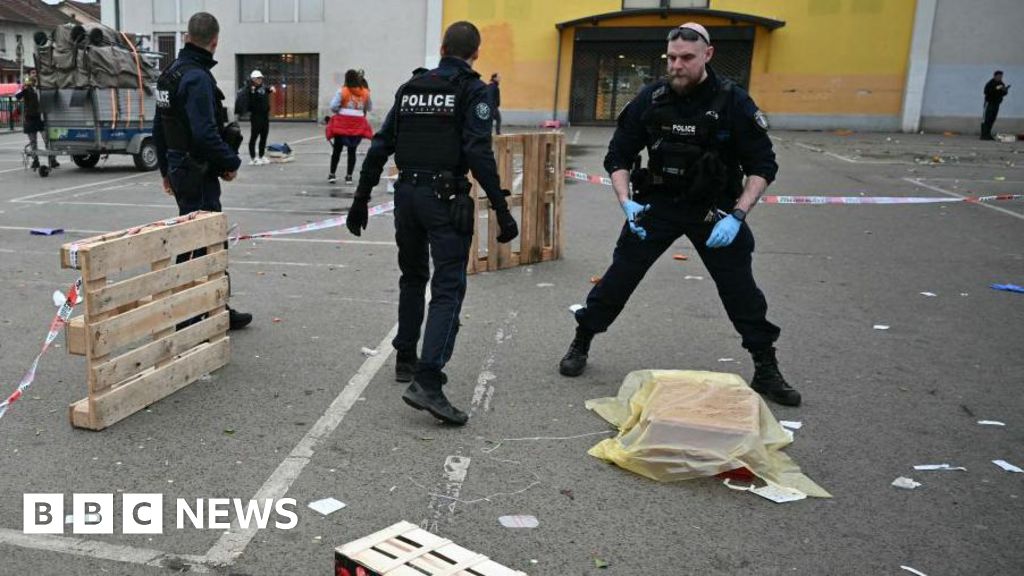
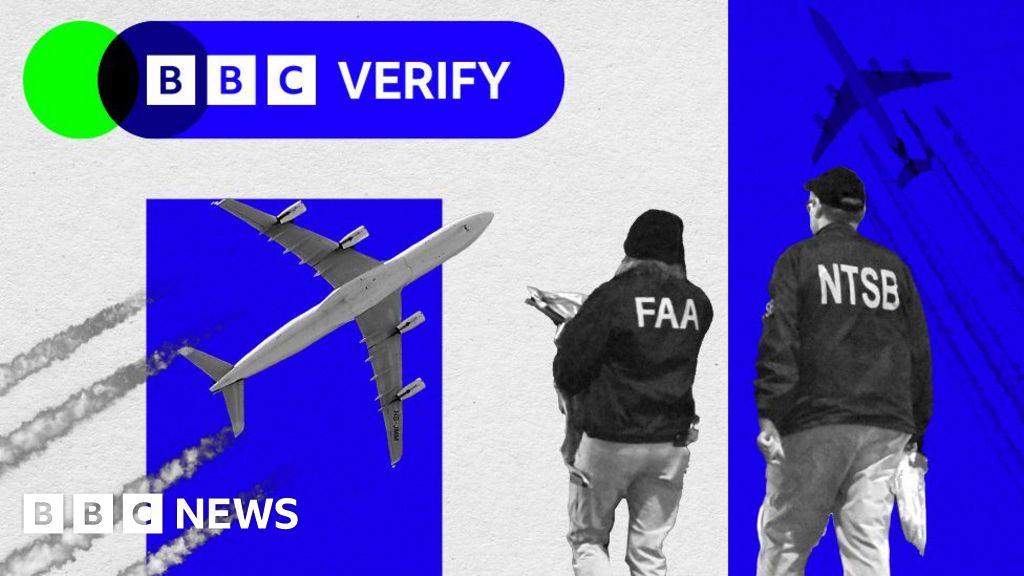
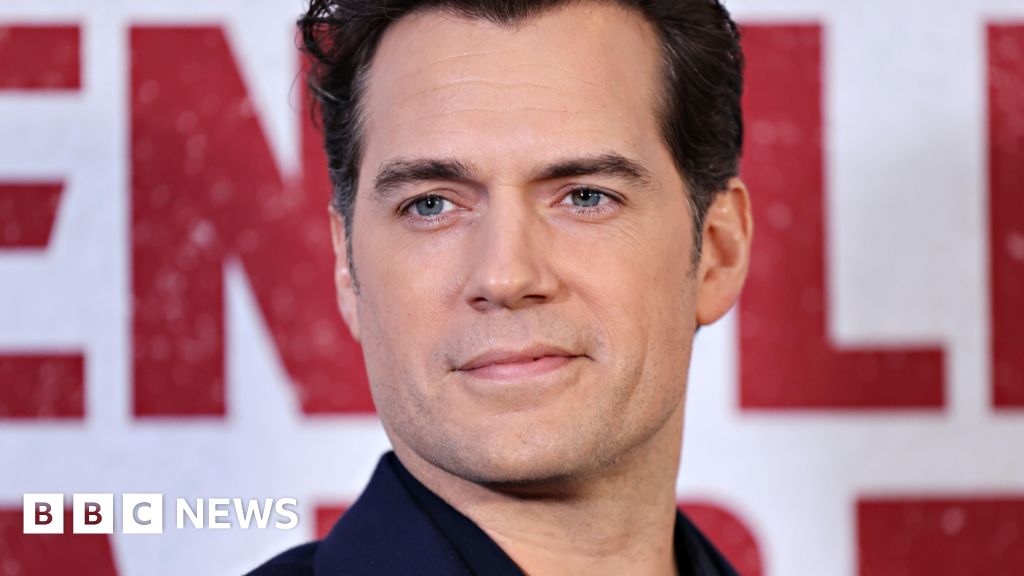
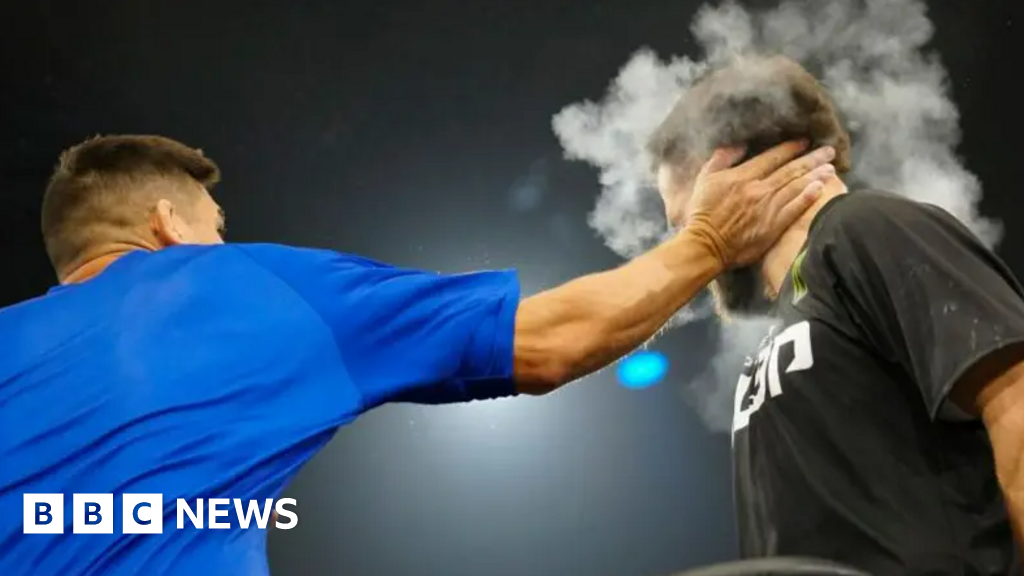
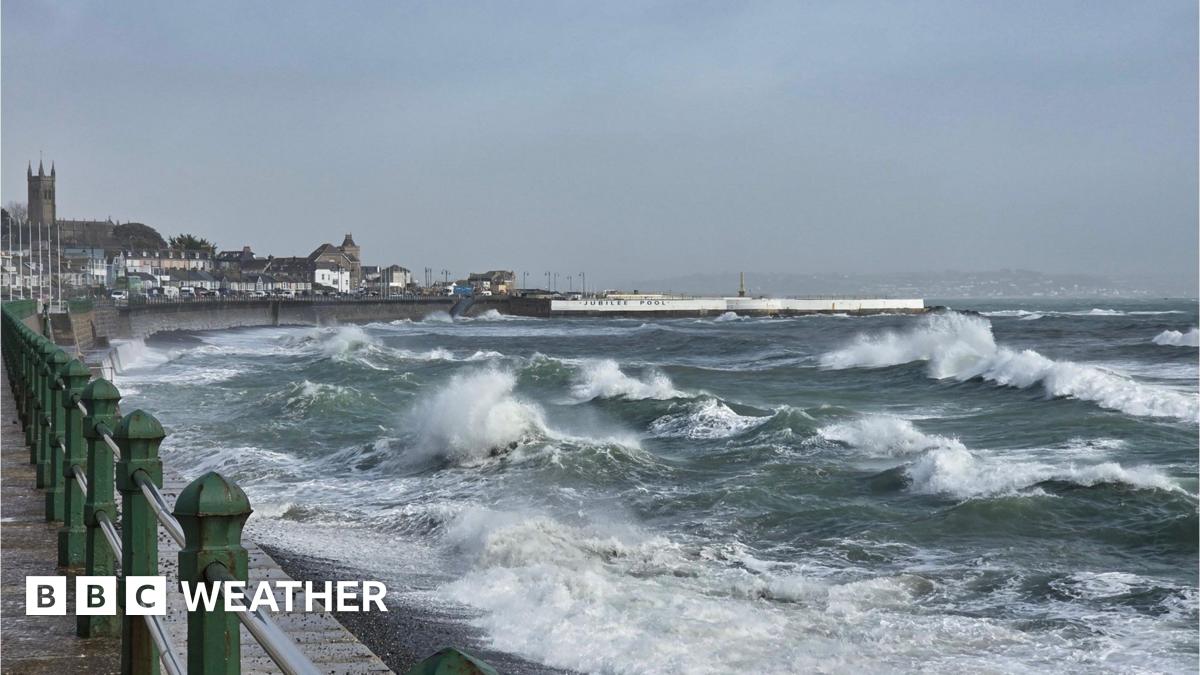



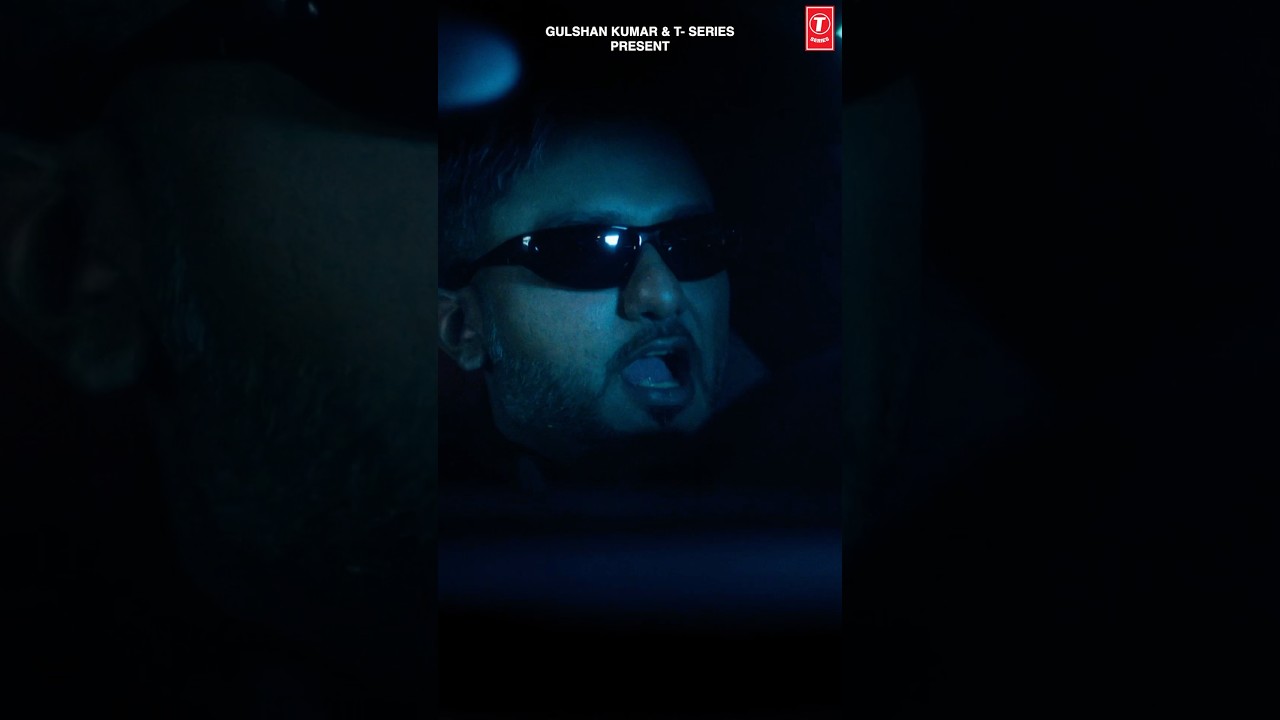
Leave a Reply